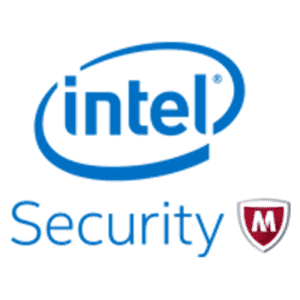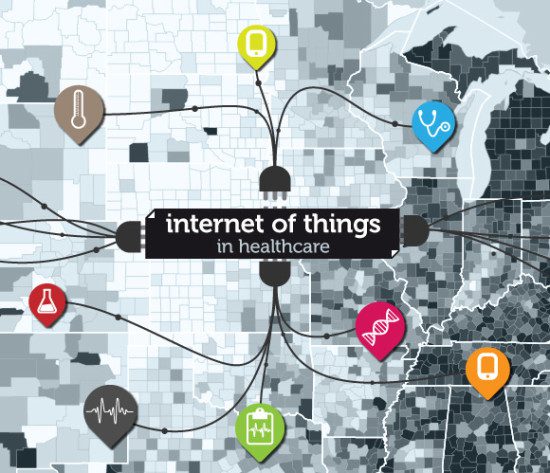Intel Security and Atlantic Council report, urges technology developers to put security first in order to reap full benefits of Healthcare Internet of Things in the UK
We are already seeing huge benefits to our daily lives with the rise of networked medical devices linked to the Internet of Things (IoT), for example wearable fitness technology prompting us to do more exercise and online monitoring reducing the need for as many hospital visits. Furthermore, we are starting to see connected medical technology such as pacemakers and insulin pumps that are critical to patient survival. In order to take full advantage of the benefits this technology offers and ensure patient safety, security needs to be a priority right from the start, says a new report released today by Intel Security and the Atlantic Council.
According to the report, The Healthcare Internet of Things: Rewards and Risks, IoT technologies could save over £42 billion in healthcare costs over 15 years with a 15-to-30% reduction in hospital equipment costs. But as these technologies continue to enter the healthcare sector, the theft of personal information, intentional tampering with devices to cause harm, widespread disruption, and accidental failures increasingly become cause for concern.
In fact, according to the Identity Theft Resource Center, in 2013 nearly half (44%) of all registered data breaches targeted medical companies. In addition, the number of information security breaches reported by healthcare payers and providers soared by 60% from 2013 to 2014, with financial losses up by a staggering 282%, according to PwC’s Global State of Information Security Survey 2015.
“Whilst IoT and networked healthcare are already improving quality of life for millions, this widespread technology uptake makes the sector a bigger target to those looking to exploit it,” says Raj Samani, VP, EMEA chief technology officer at Intel Security. “With the value and volume of attacks of stolen healthcare data on the black market increasing, technology developers and policy makers need to work more closely with the security sector to better secure patients’ personal and sensitive data, and prevent opening another door to Cybercrime.”
In its exploration of how to best tackle the security challenges for networked medical devices, the report makes recommendations for industry, regulators, and the medical profession. This advice takes into account the need to maximise the value to patients, whilst at the same time minimise the security challenges originating in software, firmware, and communications technology across networks and devices. The recommendations include:
• Security should not be an afterthought. It should be built into devices and the networks they use right from the outset.
• Industry and governments should consider implementing a comprehensive set of security standards or best practices for networked medical devices to address underlying risks.
• The approval process for medical devices may need to evolve to better incentivise innovations while enabling healthcare organisations to meet regulatory policy goals and protect the public interest.
• There must be an independent voice for the public, to ensure patients and their families have a voice. The goal is to strike a balance among effectiveness, usability, and security when the device is implemented and operated by consumers.
For further information on this or to download the full report, visit: .
About Intel Security
 McAfee is now part of Intel Security. With its Security Connected strategy, innovative approach to hardware-enhanced security, and unique McAfee Global Threat Intelligence, Intel Security is intensively focused on developing proactive, proven security solutions and services that protect systems, networks, and mobile devices for business and personal use around the world. Intel Security is combining the experience and expertise of McAfee with the innovation and proven performance of Intel to make security an essential ingredient in every architecture and on every computing platform. The mission of Intel Security is to give everyone the confidence to live and work safely and securely in the digital world. www.intelsecurity.com.
McAfee is now part of Intel Security. With its Security Connected strategy, innovative approach to hardware-enhanced security, and unique McAfee Global Threat Intelligence, Intel Security is intensively focused on developing proactive, proven security solutions and services that protect systems, networks, and mobile devices for business and personal use around the world. Intel Security is combining the experience and expertise of McAfee with the innovation and proven performance of Intel to make security an essential ingredient in every architecture and on every computing platform. The mission of Intel Security is to give everyone the confidence to live and work safely and securely in the digital world. www.intelsecurity.com.
About Atlantic Council
 The Atlantic Council is a nonpartisan organization that promotes constructive US leadership and engagement in international affairs based on the central role of the Atlantic community in meeting today’s global challenges. For more information, visit:http://www.AtlanticCouncil.org.
The Atlantic Council is a nonpartisan organization that promotes constructive US leadership and engagement in international affairs based on the central role of the Atlantic community in meeting today’s global challenges. For more information, visit:http://www.AtlanticCouncil.org.
The opinions expressed in this post belongs to the individual contributors and do not necessarily reflect the views of Information Security Buzz.



